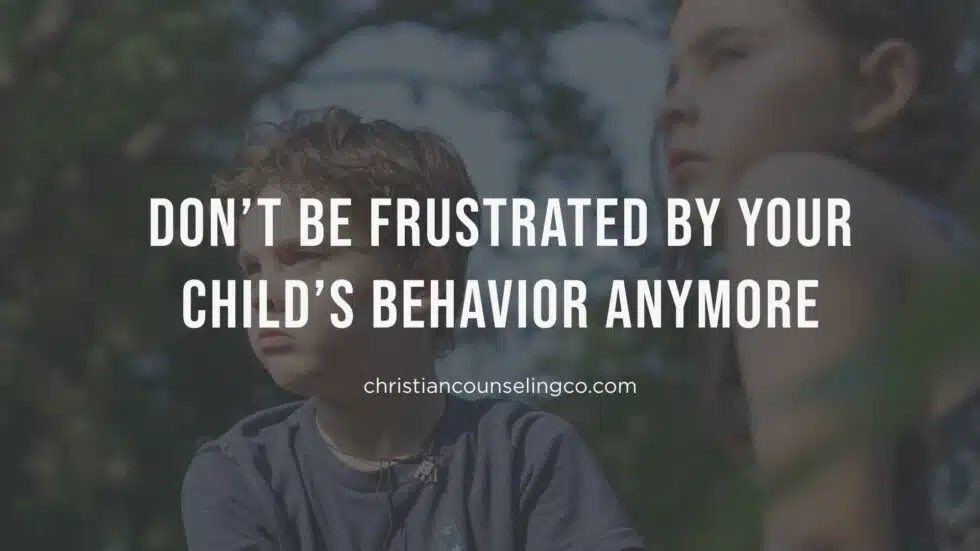Are you frustrated by your child’s behavior problems? Do you feel like you’ve tried every sticker chart and consequence out there and are still at a loss for how to motivate and change your child’s behavior? We understand, and we want to help! We recently brought on a new Christian Teen Therapist, Lauren!
1. Lauren, welcome to the team! Would you mind sharing a bit about yourself and your experience working with families?
Hey there! I grew up and went to school in East Tennessee and then completed my Masters at Liberty University in VA. I love the mountains and I love adventure, so I spend most of my free time enjoying time outdoors with family and friends. I love to travel and to experience new things. I also love good coffee and good food.
Nothing fills my cup more than just being with the people I love and experiencing life together. I feel pretty confident is saying I have some of THE BEST people, both family and good friends, by my side. I was married for 6 ½ years before my husband tragically passed away in a car accident. He passed away only 3 days before our first son was born, so I am certainly not a stranger to hardship or difficult journeys. But, I feel that pain is not wasted. God has given me a purpose to share my story to hopefully inspire others. God is writing my story in every way, and I can see his handiwork all over it, in even the tiniest details.
I’ve been working as a counselor, mostly with children and families, for about 8 years now. The majority of my work experience has been in large state agencies which has given me such a broad experience working with a wide range of people with different ages and backgrounds. Many of them are parents, maybe like you, that are frustrated with a child’s behavior. Prior to that, I had the privilege of working with children and families as a case manager in the school system. Much of my experience with elementary through high school aged kiddos also comes from working at a Christian camp every summer throughout my high school and college years. I am passionate about this age range and love working with them and their families!
2. How does pcit therapy help parents who are frustrated by a child’s behavior?
PCIT is a form of therapy that is aimed at young children who are demonstrating behavioral issues. The cause of these behaviors could be the symptoms of a number of issues such as ADHD, trauma, or just having a strong-willed, defiant child. Either way, the parents are directly involved in the therapy process and are an active part of every session. My role is to act as a coach and guide as we walk through specific skills that foster strong connection and healthy attachment, but to also give the parents effective tools for managing this behavior. Because the parents are so involved, it becomes a powerful and effective way of seeing significant change for both kids and parents. I get positive feedback from families that complete PCIT all of the time; they say it has completely changed their entire family dynamic in such a meaningful way. Because this form of therapy does require parent involvement, including daily homework, it can feel intense at times, but when families are faithful and committed to the process, I find that the results are so worth the work. I have seen PCIT help so many families and this is what keeps my passion fueled!
3. Do you have a recent real-life success story that you could tell us about?
My favorite success story was actually one of my very first cases many years ago. It’s probably the reason I continued investing in this treatment style to become a level 1 trainer with PCIT. We will call this little boy Adam. He was in foster care and some of the behaviors he was exhibiting disrupted 5 different placements because of their severity. This little boy was broken and angry and as a result, multiple foster placements said they just couldn’t handle him. It left many parents frustrated by a child’s behavior. This only worsened his behavior. Adam’s fifth foster mother came to me, desperate to help this little boy. She was at a loss for how to help and needed tools. In PCIT, we use an assessment tool to help us to measure progress. When Adam started, his initial score was 230, (which is almost 75 points higher than our average child starting PCIT). This mom was committed to the process and faithful to complete every step. Progress was slow at first, but after only 5 sessions, we had a breakthrough week. His scores began to drop dramatically and by the time he graduated, his resulting score was 110! But that’s not even the best part of this story. A few short months after graduating from PCIT, this family adopted Adam and became his forever home! I get chills every time I tell this story. I am convinced that we completely changed the trajectory of this child’s life.
4. What else could you share for parents considering this approach to counseling?
PCIT is aimed at young children 7 or younger, which is important to note. Some of the principles can be adjusted and adopted for older children, but its most effective when used as early intervention with young children. I have even done PCIT with 2 1/2 year olds, so long as they are at least somewhat verbal. It does require a weekly commitment to be at therapy with your child and to follow-through with the assigned homework; but per the model, the whole process is typically completed in an average of only 10-12 sessions. I would love to speak to and/or meet with any interested parents who think it might be a good approach for their family, but aren’t sure and have questions!
Parents and caregivers, we would love to partner with you in bringing growth and healing to the relationship you share with your child! You deserve to feel freedom and not be weighed down by anxiety and frustration about your child’s behavior. We have many clinically excellent Christian counselors who would love to come alongside you and your child or teenager. To view all of our counselors, click here!






